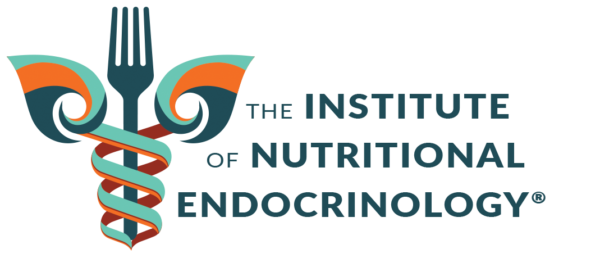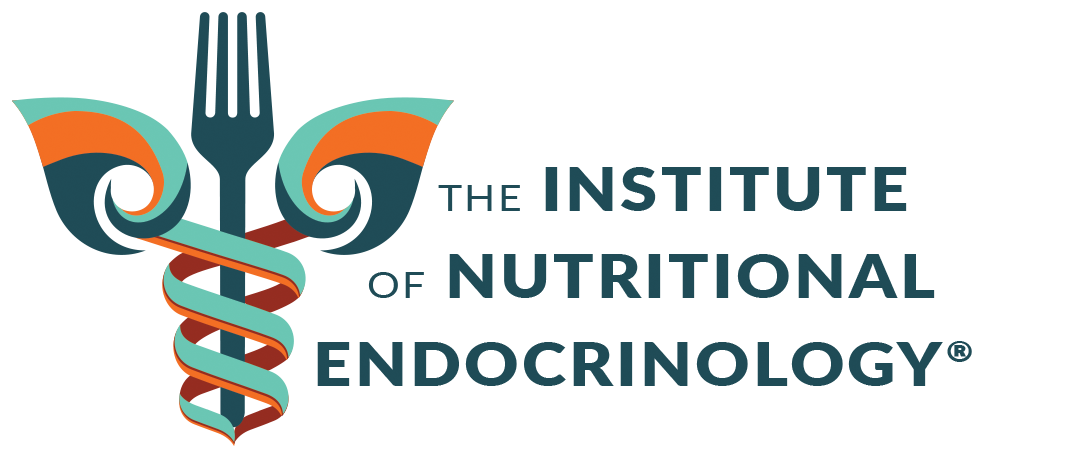Clinical Pearls – 2015
Use Genetic Reports to Influence Your Client to Change – June 7th, 2015
Nutritional Endocrinology Practitioner Training (NEPT)
Clinical Pearl
June 7th, 2015
Use Genetic Reports to Influence Your Client to Change
You know how sometimes it’s hard to get your clients to see the importance of following a health sustaining diet? They whine and complain about missing all their favorite foods.
Sometimes what works is to show them lab results that indicate that they NEED to make the changes ASAP to avoid steady decline. When they understand how the old habits impact their quality of life and their biochemistry, they often will stop.
There are 2 things that I find helpful in influencing change. One is a simple gluten test. Generally, people with chronic symptoms show up as gluten intolerant. The simple $99 test form enterolab.com is often quite helpful at persuading people to get off gluten.
The second powerful strategy is another very inexpensive lab test – 23 and Me Genetics. It’s also just $99.
What I find is that when you can point out a few major SNPs related to food they often get motivated to change. For example, with CYP1a1 SNPs, they have difficulty with heterocyclic amines — maybe it’s time to give up the barbequed meats?
Dairy blocks folate receptors, and is especially bad with FOLR1, 2, or 3 SNPs for folate receptors.
There are genes that impact caffeine metabolism and, alcohol clearance too.
Check out my VITAL presentation from Thursday on Nutrigenomics for a simple key to some of these food related SNPs.
And if you don’t know what a SNP is? Even more reason to check it out.
The edited version will soon be on the site, but for now you can check it out HERE:
http://iTeleseminar.com/69977406
Replay Page Password: yourdna
And for a lot of detail, check out the Nutrigenomics module on the Vibrant Living Members site. On the Part 2 page there is a set of “cheat sheets.”
Remembering Root Cause – May 31st, 2015
Nutritional Endocrinology Practitioner Training (NEPT)
Clinical Pearl
May 31st, 2015
Remembering Root Cause
It’s easy to get caught in the trap of thinking about a client’s condition rather than the client themselves.
I see it all the time amongst colleagues and students alike.
When you ask the question, What should I suggest for a patient with ‘x’ disease or symptoms? you are using a reductionistic approach.
Instead, what if you asked, What underlying imbalances are causing my client’s ‘x’ symptoms?
That’s a completely different question, even though it may seem similar.
The truth is it’s important to look at mechanisms. Whether you’re dealing with someone presenting with gastritis or arthritis, the commonality is the itis – inflammation. Rather than, What can I do for someone with arthritis? the question is Why does my client have excess inflammation and how can I calm it down?
Root cause analysis and building a strong foundation are ALWAYS where you start.
The Importance of Timing Your Meals – May 24th, 2015
Nutritional Endocrinology Practitioner Training (NEPT)
Clinical Pearl
May 24th, 2015
The Importance of Timing Your Meals
I discovered another great reason for meal spacing and not eating too close to bedtime.
Turns out the migrating motor complex, which starts at the bottom of your stomach and goes through your small intestine, is very sensitive to food timing, just like blood sugar.
In fact, the migrating motor complex shuts down for 4 hours after eating. The migrating motor complex is responsible for moving undigested food and “bugs” along the digestive tract towards the large intestine. Failure of the migrating motor complex to do its job is one of the root causes of small intestine bacterial overgrowth (SIBO). So practice what you teach and teach this to your clients, especially if they have a lot of gas and bloating.
Here are some interesting articles if you want to learn more:
http://www.cleanandleanrevolution.com/when-your-stomach-growls-it-isnt-telling-you-it-is-hungry
So next time you feel your GI Tract rumbling in-between meals, enjoy the process. It’s moving the indigestible food and bugs downstream to prevent bacterial overgrowth in the small intestine.
The Magic of Selenium – May 17th, 2015
Nutritional Endocrinology Practitioner Training (NEPT)
Clinical Pearl
May 17th, 2015
The Magic of Selenium
We’ll be going into detail about this special mineral on Saturday, but I thought I would give you a sneak preview with this article.
Steph Jackson has an amazing selenium audio and paper she wrote for a NEPT project. I will share that when we post the minerals content.
Selenium is an important nutrient for thyroid function. It facilitates the conversion from T4 to T3 and helps bring down antibody levels. It also works with glutathione in antioxidant support.
Dr. Denis Wilson wrote a recent article that you’ll enjoy as a preview:
Vitamin A for fatigue – May 10th, 2015
Nutritional Endocrinology Practitioner Training (NEPT)
Clinical Pearl
May 10th, 2015
Vitamin A for fatigue
As I prepared for our vitamin intensive, I was reminded that we often overlook Vitamin A as a tool in managing fatigue.
There are several mechanisms by which Vitamin A can be an important tool in re-energizing your clients:
Vitamin A interacts with iron and just may be the missing link in resistant cases of iron deficiency anemia. Check out the Vitamin A presentation in the micro-nutrient module, to be available within the next few days, for more specific details.
Vitamin A deficiency can impact thyroid function.
Your client may be low in Vitamin A if they are vegetarian AND they have a particular genetic SNP (single nucleotide polymorphism) called BCM01, which impacts the enzyme that converts beta carotene to Vitamin A. In this case, it’s important to supplement with Vitamin A. My preference is Micellized Liquid Vitamin A. I have that SNP, and I am vegan, so I take Vitamin A drops a few times a week for “insurance.”
The Thyroid Adrenal Relationship – May 3rd, 2015
Nutritional Endocrinology Practitioner Training (NEPT)
Clinical Pearl
May 3rd, 2015
The Thyroid Adrenal Relationship
You’ve heard me speak many times about the functional hierarchy and how addressing the thyroid without restoring adrenal function is asking for trouble.
One thing that very few people talk about is how conventional medicine’s approach to low thyroid, treatment with synthetic T4, can cause problems.
If the T4 to T3 conversion doesn’t happen as it should, which happens as a result of adrenal imbalance, the body can become overloaded with unused T4. The extra T4 can get converted to reverse T3, which puts on the breaks and blocks the thyroid receptors.
If T4 is adequately converted to T3, but the T3 cannot enter the cell walls due to adrenal insufficiency or iron deficiency, the T3 can’t be used, and may pool or build up in the blood.
Therapeutic Use of Cannabis – April 26th, 2015
Nutritional Endocrinology Practitioner Training (NEPT)
Clinical Pearl
April 26th, 2015
Therapeutic Use of Cannabis
There is a lot of controversy and mixed opinions regarding the legalization of marijuana. I believe 25 or so states have approved it for medical use and 2 for recreational use.
While I am not in favor of my 16-year-old experimenting with pot, I do believe there may be some therapeutic uses that have merit.
Just this week I got a newsletter with a link to a video about CBD, a non-hallucinogenic constituent that shows promise for a number of conditions including MS.
It’s quite expensive, free of THC and seems to have some good science behind it.
Just today, I suggested a patient with MS-like symptoms who has been on a roller coaster ride give it a look-see.
I would love to hear your opinions on the Facebook page.
Connecting with Your Clients – April 12th, 2015
Nutritional Endocrinology Practitioner Training (NEPT)
Clinical Pearl
April 12th, 2015
Connecting with Your Clients
When working with clients it’s important to validate where they are and connect deeply to their experience of pain without making it a pity-party. Be compassionate. Be loving. And empower them with the belief that this is a temporary situation. Don’t allow them to identify with their disease. Catch them when they say “I am tired” and help them to shift it to I feel – “I feel tired” rather than “I am tired.”
Causes and Signs of Skin Problems – April 5th, 2015
Nutritional Endocrinology Practitioner Training (NEPT)
Clinical Pearl
April 5th, 2015
Causes and Signs of Skin Problems
Breakouts are not only skin deep. When your client has a skin eruption, it is the sign of something deeper.
Often times, the skin is an organ of elimination when other channels are blocked. Look for signs of constipation, irritable bowel and dysbiosis. Often times removing allergens like gluten and dairy result in rapid skin healing.
Acne is no exception. It often erupts during puberty when hormones are fluctuating and on the rise. This results in excess sebum production, and when combined with the typical teenage diet of pizza, soft drinks and processed food, leads to breakouts. So when a client presents with skin problems, here’s where to look for resolution:
Diet – processed foods and allergens. Do a trial of gluten and dairy-free
Gut imbalance – look at what they are eating and work to improve, and probiotics and enzymes can be helpful
Liver stagnation – when the detox pathways are clogged, elimination through the skin occurs, and when toxins are eliminated through the skin, breakouts can occur
Nutrient imbalances – the most common ones are vitamin A, zinc and omega 3 fats
These are just a few ways to get started. The herb yellow dock is an awesome liver detox herb that also assists with mineral absorption. It’s used in many formulas for clearing skin.
Adrenal Fatigue and Stress – March 29th, 2015
Nutritional Endocrinology Practitioner Training (NEPT)
Clinical Pearl
March 29th, 2015
Adrenal Fatigue and Stress
Theoretically stage 1 adrenal fatigue is a lot easier to recover from than stage 3 – if you can get the client to do the work.
The problem with stage 1 – tired and wired – is that these people still have a decent amount of energy, so it’s harder to get then to slow down and give their adrenals a rest. They still have the go-go-go mentality.
It’s often helpful to give them soothing and calming herbs and nutrients while working on getting them to be consistent with stress transformation breaks and resting.
I’m noticing that with some of the people on the CAFE program, the stage one people are eager to jump ahead to the supplements and herbs, without first addressing the underlying cause – stress.
Here’s a link to an article about adrenal health that I wrote a while back:
http://drritamarie.com/blog/2010/07/05/adrenal-fatigue-tips-to-restoring-your-energy-and-your-health

